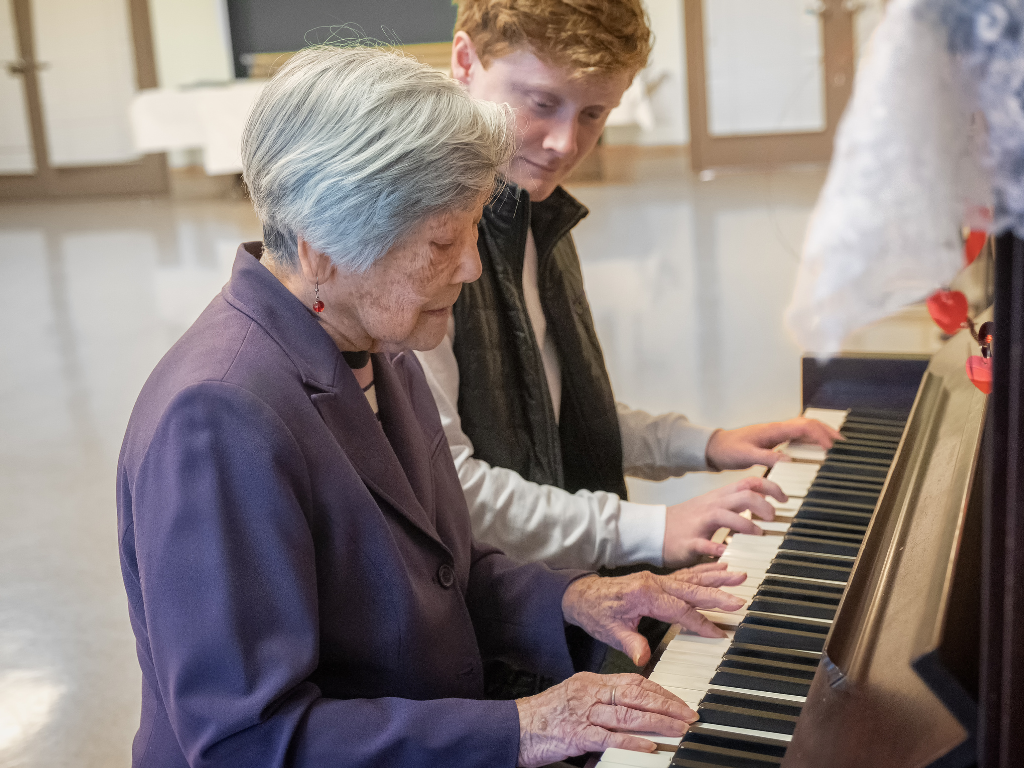In the dynamic landscape of age care, holistic approaches have risen in prominence, emphasizing the integrated well-being of seniors. Recognizing that elderly individuals have a myriad of interconnected needs—physical, mental, and spiritual—a holistic strategy seeks to cater to the whole person, rather than focusing on isolated aspects of their health or well-being.
Integrating Physical, Mental, and Spiritual Well-being Through Regular Activities

Physical Well-being:
- Regular Physical Activity: Encourages seniors to participate in age-appropriate exercises to improve mobility, balance, and strength. Gentle exercises like tai chi, yoga, and walking can be particularly beneficial.
- Balanced Diet: Providing nutritious meals that are tailored to the specific health needs of the elderly, ensuring they receive the essential vitamins and minerals.
Mental Well-being:
- Cognitive Stimulation: Activities such as puzzles, reading, or games can help keep the mind active and potentially slow cognitive decline.
- Emotional Support: Regular interaction, counseling, and group activities can combat feelings of loneliness or isolation.
Spiritual Well-being:
- Mindfulness and Meditation: Can offer peace, clarity, and a sense of purpose, allowing seniors to connect with their inner selves.
- Religious Practices: For those inclined, ensuring they have the resources and opportunities to practice their faith can be essential for spiritual fulfillment.
The Rise of Alternative Therapies

Alternative therapies have found their way into age care settings, providing unique avenues for engagement, relaxation, and healing.
- Music Therapy: Leveraging the emotional and cognitive benefits of music. Whether it’s through listening to familiar tunes, singing along, or even playing instruments, music can evoke memories, stimulate the brain, and provide emotional release.
- Art Therapy: Allows seniors to express themselves creatively. Painting, drawing, or crafting can be therapeutic and offers a medium for self-expression and cognitive engagement.
- Pet Therapies: The introduction of animals, whether through regular visits from therapy animals or allowing residents to keep pets, has been shown to reduce stress, increase feelings of companionship, and improve overall mood.
- Nature Therapy: Incorporating nature into age care, whether through garden walks, plant care, or simply spending time outdoors, can have significant benefits, including reducing feelings of depression and increasing physical activity.
The Benefits of a Holistic Approach for Overall Quality of Life
Adopting a holistic approach in senior care centers offers multifaceted benefits:
- Personalized Care: Recognizing that every individual has unique needs ensures that care plans are tailored to cater to the whole person.
- Enhanced Engagement: Offering a variety of therapies and activities means that there’s something for everyone, increasing participation and enthusiasm.
- Improved Physical Health: A combination of regular exercise, balanced nutrition, and alternative therapies can lead to better mobility, reduced pain, and overall improved health.
- Mental and Emotional Well-being: By focusing on mental health, age care facilities can combat common issues faced by the elderly, including depression, anxiety, and feelings of isolation.
- Spiritual Fulfillment: Catering to the spiritual needs of seniors ensures they have a sense of purpose, peace, and contentment in their later years.
Customizing Holistic Approaches for Individual Needs
Every senior has a unique history, set of preferences, and health conditions. Therefore, holistic care should be personalized to cater to these distinct characteristics.
- Assessing Needs: Before implementing any holistic therapy or approach, it’s crucial to assess the individual’s physical, mental, and spiritual needs. This might involve a comprehensive evaluation including medical history, personal interests, and spiritual beliefs.
- Family Involvement: Engaging family members can provide insights into the senior’s past, their preferences, and specific needs. Regular feedback from families can also help fine-tune the holistic care approach.
- Flexibility: As a senior’s condition and preferences change, the holistic approach should be adaptable. This might involve transitioning from one form of therapy to another or integrating multiple therapies.
Challenges in Implementing Holistic Approaches
While holistic methods have clear benefits, there are challenges to consider:
- Resource Constraints: Some alternative therapies require specialized training or equipment, which might not be readily available in all age care settings.
- Resistance to Change: Both staff and seniors might be skeptical or resistant to non-traditional methods. Educating everyone involved about the benefits can help overcome this hurdle.
- Individual Variability: Not every therapy will work for every individual. Some might not respond to music therapy but find immense joy in art or pet therapies.
Future Prospects of Holistic Approaches in Age Care
The future looks promising for holistic approaches in age care:
- Integrating Technology: With the advent of VR (Virtual Reality) and AR (Augmented Reality), there are emerging opportunities to create immersive therapeutic experiences, from virtual nature walks to interactive art sessions.
- Research and Development: As more research is conducted, we’ll likely discover new alternative therapies and refine existing ones for better outcomes.
- Global Collaboration: As holistic approaches gain traction globally, there’s potential for international collaboration, sharing best practices, and joint research initiatives.



